7 Benefits of Walking for Just 10 Minutes After a Meal
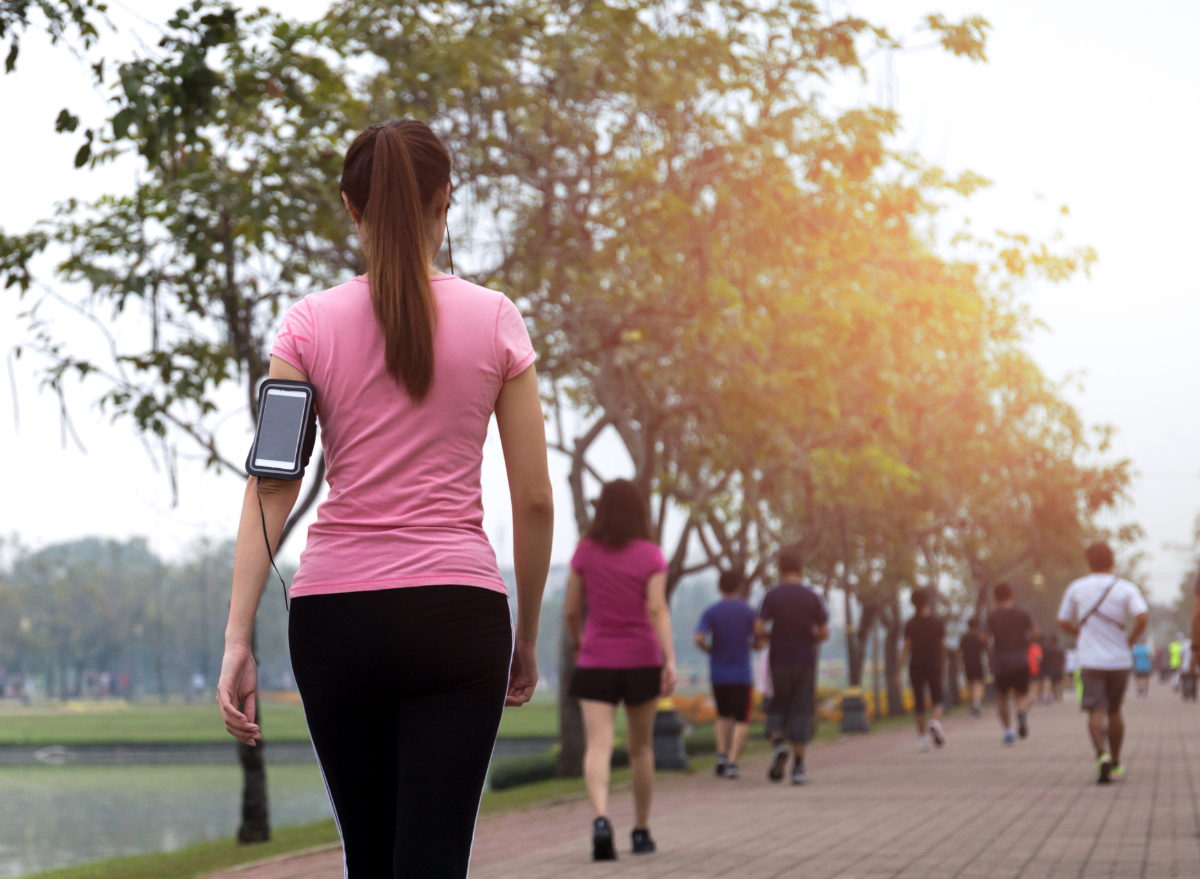
It could be tempting to sit down, stretch out, and relax with some Netflix following a hearty dinner. But did you know that there are many health benefits derived from walking just 10 minutes after a meal? That’s right! Lacing up your sneakers and getting in some steps is a smart addition to any healthy lifestyle. We spoke with Ellen Thompson, CPT, Blink Fitness, who shares with us the many pros of going on a brisk post-meal walk.
“It’s important to note that the benefits of walking are cumulative, and consistency is key,” Thompson stresses. “While a 10-minute walk after meals provides various benefits, engaging in regular physical activity throughout the day is essential for overall health. Aim for at least 150 minutes of moderate-intensity aerobic activity, such as brisk walking, per week, as recommended by health guidelines.”
Filling your lifestyle with great habits can add years to your life and help you avoid so many chronic health conditions. So do yourself a favor and start getting in some extra strides after lunch and/or dinner. Keep reading to learn all about the benefits of walking for 10 minutes after a meal. And when you’re finished, be sure to check out these 9 Lazy Ways to Lose Weight All Month Long.
It improves digestion.

Getting in some steps after mealtime will help you digest better and get things moving. Thompson explains, “Walking aids in digestion by promoting the movement of food through the digestive system. It helps prevent indigestion and bloating by stimulating the digestive tract muscles.”
It regulates blood sugar.
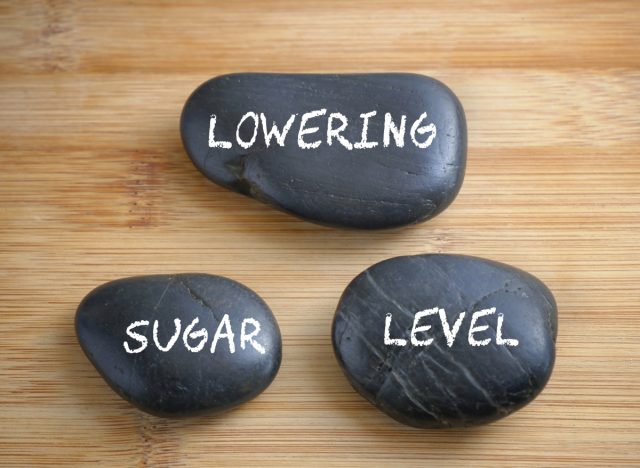
By carving out just 10 minutes for a brisk walk, you’ll also help keep your blood sugar in check—science says so! Research published in Sports Medicine shows that heading out on a short walk after eating can decrease blood sugar levels and lower your chances of developing type-2 diabetes.
“Post-meal walks can help lower blood sugar levels by increasing glucose uptake by muscles. This is particularly beneficial for individuals with insulin resistance or diabetes,” Thompson says.
It aids in weight management.
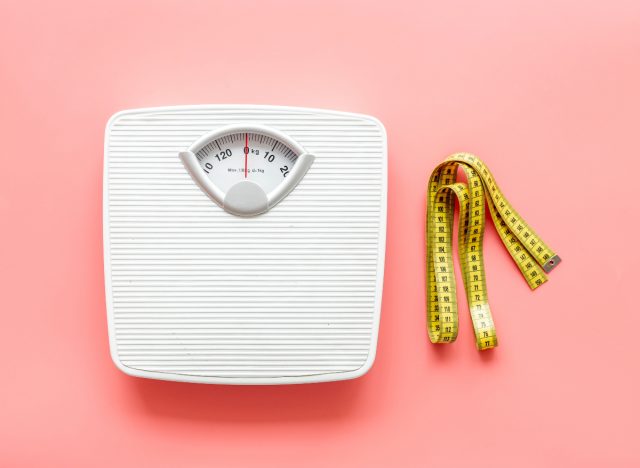
Adding extra steps to your day is key for weight loss and maintenance—and research shows that timing is everything. A study published in the International Journal of General Medicine found that walking immediately after a meal is more beneficial for those who want to lose weight than waiting an hour after a meal to get in those steps.
According to Thompson, “Regular short walks, especially after meals, contribute to burning calories. Over time, this can help with weight management and prevent weight gain associated with sedentary behaviors.”
It boosts your heart health.

It should come as no surprise to hear that a 10-minute bout of cardio can boost your heart health. So lace up those sneakers, and show your heart some love.
“Walking is a cardiovascular exercise that increases blood circulation and promotes heart health. After a meal, it helps in moderating blood pressure and reducing the risk of cardiovascular diseases,” Thompson tells us.
It lowers your risk of type 2 diabetes.
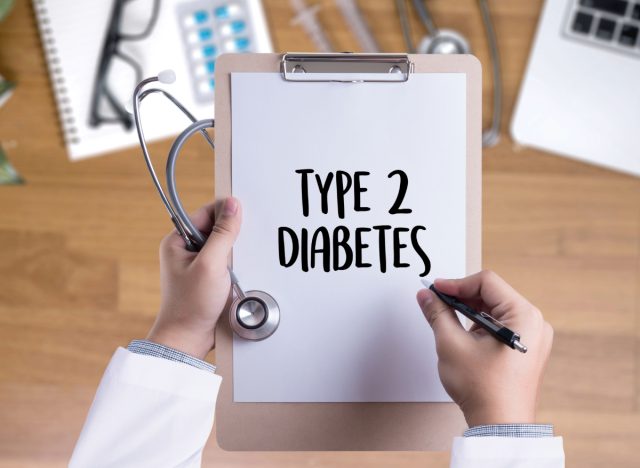
“Walking after meals has been shown to improve insulin sensitivity, reducing the risk of developing type 2 diabetes,” Thompson stresses. “It helps the body use insulin more effectively to regulate blood sugar.”
It boosts your mood and overall well-being.
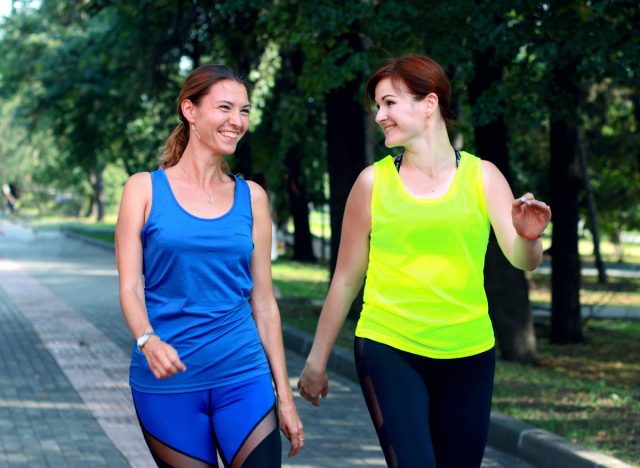
If you need a little pick-me-up, you can always count on exercise to get those endorphins flowing. “Physical activity, even in short durations, releases endorphins, the ‘feel-good’ hormones. A brief walk after a meal can help alleviate stress, improve mood, and enhance overall mental well-being,” Thompson says.
It will help you get better sleep.

By adding more exercise to your day, your sleep patterns can also improve. “Regular physical activity, including short walks after meals, can contribute to better sleep quality. It helps regulate circadian rhythms and promotes a more restful night’s sleep,” shares Thompson.
- Source: The Acute Effects of Interrupting Prolonged Sitting Time in Adults with Standing and Light-Intensity Walking on Biomarkers of Cardiometabolic Health in Adults: A Systematic Review and Meta-analysis
- Source: Walking just after a meal seems to be more effective for weight loss than waiting for one hour to walk after a meal









